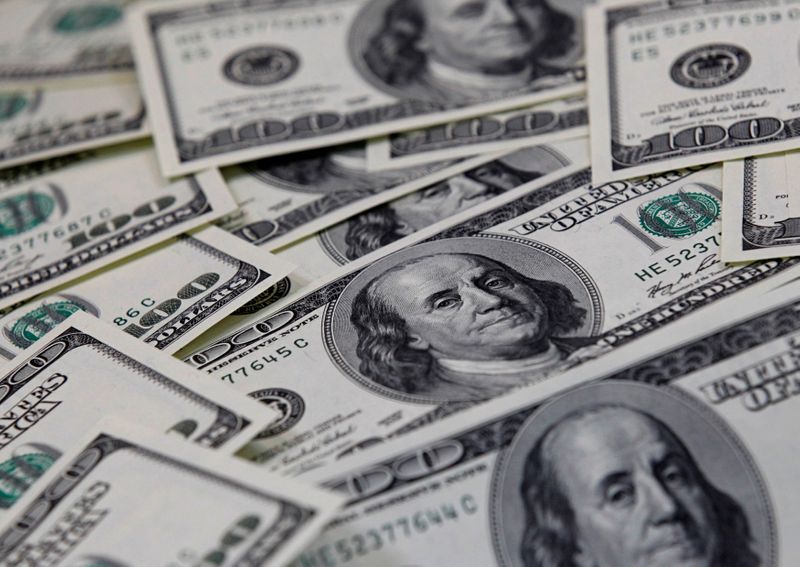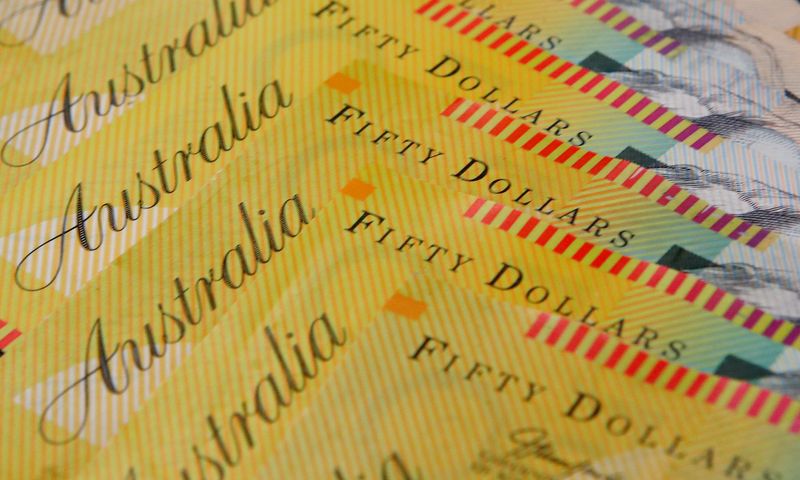NEW YORK (Reuters) – Dovish testimony from Federal Reserve Chair Jerome Powell on Wednesday bolstered bets on reflation and fears of inflation, driving the U.S. dollar to fresh three-year lows against commodity-linked currencies including the Canadian, Australian and New Zealand dollars.
Powell reiterated on Wednesday that U.S. interest rates will remain low and the Fed will keep buying bonds to support the U.S. economy. Powell’s remarks to the House of Representatives Committee on Financial Services mirrored his testimony before the Senate on Tuesday.
Easy financial conditions, the promise of fiscal stimulus and the COVID-19 vaccine rollout have driven money into the reflation trade – which refers to bets on an upswing in economic activity as well as in inflation.
Currencies expected to benefit from a pick-up in global trade, like those linked to commodities, have benefited as have those in countries like Britain, that are making progress recovering from the coronavirus pandemic.
“The Fed staying the course has reinforced optimism in the economic outlook, boosting currencies with close ties to global growth. While the dollar has lost steam, its decline has been slowed by elevated Treasury yields,” said Joe Manimbo, senior market analyst at Western Union Business Solutions.
The dollar’s weakness in recent days has been more remarkable as it comes against the backdrop of a broader rise in U.S. yields. Benchmark 10-year borrowing costs are holding near their highest in a year. [US/]
But the Fed’s commitment to low rates and the passage of fiscal stimulus has some investors worried that inflation could outpace growth. Those fears may be further supporting commodity-linked currencies, because commodities rise with inflation. The Canadian, Australian and New Zealand dollars on Wednesday each hit their highest against the U.S. dollar since early 2018.
“It is critical to make judgements on whether reflation turns into excess reflation which then turns into inflation,” said Alan Ruskin, chief international strategist at Deutsche Bank.
Against the Canadian dollar, the greenback was last 0.61% lower on the day at 1.251 CAD per dollar. The Australian dollar was last up 0.67% to 0.796 per U.S. dollar. The Kiwi was last up 1.38% on the day to 0.744.
Overnight, the British pound climbed past $1.42 for the first time since April 2018.
The dollar index against a basket of six major currencies was at 90.058, down 0.07% on the day.
(Reporting by Kate Duguid in New York and Saikat Chatterjee in London; Editing by Sonya Hepinstall and Alistair Bell)
























